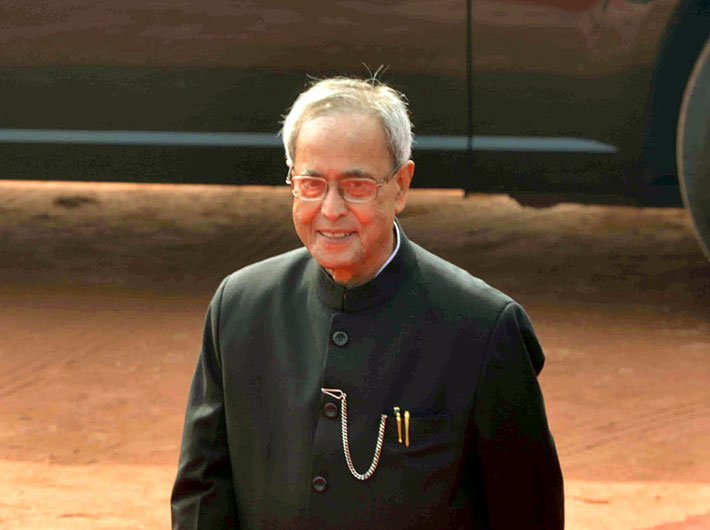President said holding of frequent elections is a strain on both administrative and financial resources
President Pranab Mukherjee on Thursday emphasised on the need to avoid disruption of parliamentary proceedings. He said that while three Ds are essential in a parliamentary system of democracy i.e. Debate, Dissension and Decision, the fourth D i.e. Disruption is totally unacceptable.
The parliament is expected to transact business on important issues such as those related to money and finance. Whatever be the differences, members have the opportunity to speak their mind and discuss issues freely. Even if a member levels an allegation against someone, no court can prosecute him because he has said so on the floor of the House. This extent of freedom available to members of parliament should not be misused by causing disruptions. Disruptions amount to gagging the majority as it is only the minority which disrupts and the Chair has no choice but to adjourn the proceedings, said Mukherjee while delivering the fourth Defence Estates Day Lecture on ‘Electoral Reforms for a Stronger Democracy’ in New Delhi.
The president said that India adopted its Constitution in 1950 and the first general elections were held in 1952. In the initial years, many doubted that parliamentary system of democracy in India would be successful. However, regular elections held successfully have proved the skeptics wrong. Many scholars later commented that we have entered a coalition era and the possibility of forming a single party government in a diverse country like India was unlikely. However, this view was proved wrong in 1984 as well as in the last general elections of 2014, when a decisive mandate was given in favour of a single political party.
The president said there are certain areas regarding holding of elections which require attention and there are aberrations which need to be corrected. This has necessitated electoral reforms which should be taken up seriously.
He said holding of frequent elections is a strain on both administrative and financial resources. We are ready to pay this price for democracy, but, it should not be at the cost of development. Administrative and development work is adversely affected during elections since no new development projects can be taken up. During state elections, work related to government of India in that state should not be affected. The election commission, state and central governments and political parties should sit together and discuss this issue.
The president said the Election Commission of India could consider compressing the time frame of announcement, notification and conduct of the elections. The period of elections tends to get very long as it is spread over phases.
Another suggestion the president made was of having larger number of Lok Sabha seats for which a constitutional amendment could be considered. India has over 800 million voters. The delimitation of Lok Sabha constituencies is on the basis of the 1971 census. Today, 543 Lok Sabha Constituencies represent 1.28 billion people. To give true expression to the will of the people, it is time that we seriously look at the legal provisions on the delimitation of the parliamentary constituencies with a view to increasing their number.
Mukherjee said another aspect which was important was reservation of seats for women in parliament and state legislative assemblies. Although the population of women in the country is almost fifty percent, their representation is abysmally low. This is totally unacceptable.
The president concluded that he was proud of the Indian parliamentary system but electoral reforms have now become necessary.
Also read: Case for synchronising election cycles
